The 2nd New Zealand Parliament was a term of the Parliament of New Zealand. It opened on 15 April 1856, following New Zealand's 1855 election. It was dissolved on 5 November 1860 in preparation for 1860–61 election. The 2nd Parliament was the first under which New Zealand had responsible government, meaning that unlike previously, the Cabinet was chosen by Parliament rather than by the Governor.
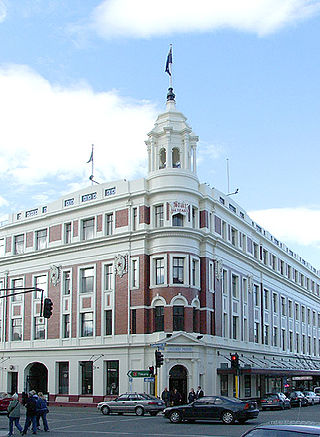
The Otago Daily Times (ODT) is a newspaper published by Allied Press Ltd in Dunedin, New Zealand. The ODT is one of the country's four main daily newspapers, serving the southern South Island with a circulation of around 26,000 and a combined print and digital annual audience of 304,000. Founded in 1861 it is New Zealand's oldest surviving daily newspaper – Christchurch's The Press, six months older, was a weekly paper until March 1863.

Oswald Chettle Mazengarb, known as Ossie Mazengarb, was a New Zealand barrister.
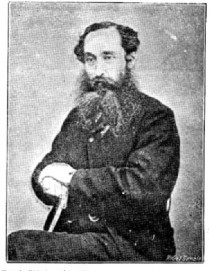
The 1866 New Zealand general election was held between 12 February and 6 April to elect 70 MPs to the fourth term of the New Zealand Parliament.
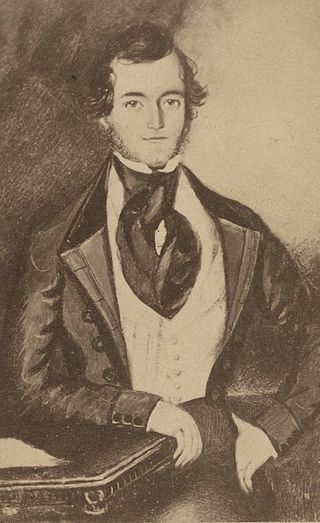
Joseph Hawdon was a pioneer settler and overlander of Australia, and pioneer and politician of New Zealand.
George Burnett Barton was an Australian lawyer, journalist and historian.
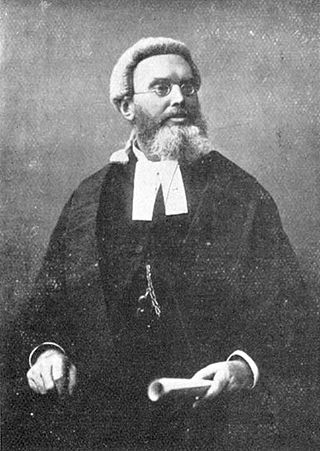
Sir James Prendergast was the third Chief Justice of New Zealand. Prendergast was the first Chief Justice to be appointed on the advice of a responsible New Zealand government, but is chiefly noted for his far-reaching decision in Wi Parata v The Bishop of Wellington in which he described the Treaty of Waitangi as "a simple nullity"

William Downie Stewart was a 19th-century New Zealand politician and a lawyer.

Waitaki is an electorate for the New Zealand House of Representatives that crosses the boundary of North Otago and South Canterbury towns on the East Coast of the South Island. The electorate was first established for the 1871 election that determined the 5th New Zealand Parliament. It has been abolished and re-established several times and in its early years was a two-member electorate for two parliamentary terms. The current electorate has existed since the 2008 election and is held by Jacqui Dean of the National Party.
Wallace was a New Zealand parliamentary electorate. It was established in 1858, the first election held in 1859, and existed until 1996. For a time, it was represented by two members. In total, there were 18 Members of Parliament from the Wallace electorate.
Chalmers, originally Port Chalmers, was a parliamentary electorate in the Otago Region of New Zealand, from 1866 to 1938 with a break from 1896 to 1902. It was named after the town of Port Chalmers, the main port of Dunedin and Otago.
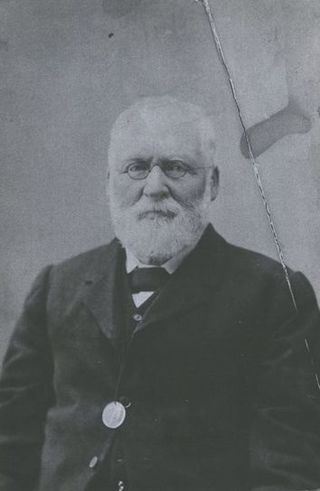
Edward Bowes Cargill was a 19th-century businessman and Member of Parliament in Dunedin, Otago, New Zealand. He was the Mayor of Dunedin from 1897 to 1898.
Wellington, was a parliamentary electorate in Wellington, New Zealand. It existed from 1853 to 1905 with a break in the 1880s. It was a multi-member electorate. The electorate was represented, over the years, by 24 members of parliament.
The third New Zealand Parliament was a term of the Parliament of New Zealand. Elections for this term were held between 12 December 1860 and 28 March 1861 in 43 electorates to elect 53 MPs. Two electorates were added to this during this term, Gold Fields District and a new Dunedin electorate created by splitting the existing City of Dunedin into Dunedin and Suburbs North and Dunedin and Suburbs South, increasing the number of MPs to 57. During the term of this Parliament, six Ministries were in power.
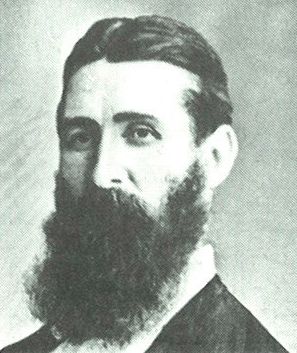
Henry Thomson JP was a 19th-century Mayor of Christchurch and Member of Parliament for the Christchurch North electorate in Canterbury, New Zealand.
The 10th New Zealand Parliament was a term of the Parliament of New Zealand. Elections for this term were held in 4 Māori electorates and 91 European electorates on 7 and 26 September 1887, respectively. A total of 95 MPs were elected. Parliament was prorogued in October 1890. During the term of this Parliament, two Ministries were in power.

Richard Davies Ireland was an Australian politician, a member of the Victorian Legislative Assembly and Attorney-General.
Morris Lyon Marks was a Jewish businessman remembered as a politician in the colony of South Australia. He was frequently referred to by his full name or as "Morris L. Marks" to distinguish him from several contemporaries named Morris Marks.

Edward Gustavus Campbell Barton was an electrical engineer and a member of the Queensland Legislative Assembly.

Sir John Edward Denniston was a judge of the Supreme Court in Christchurch, New Zealand.











